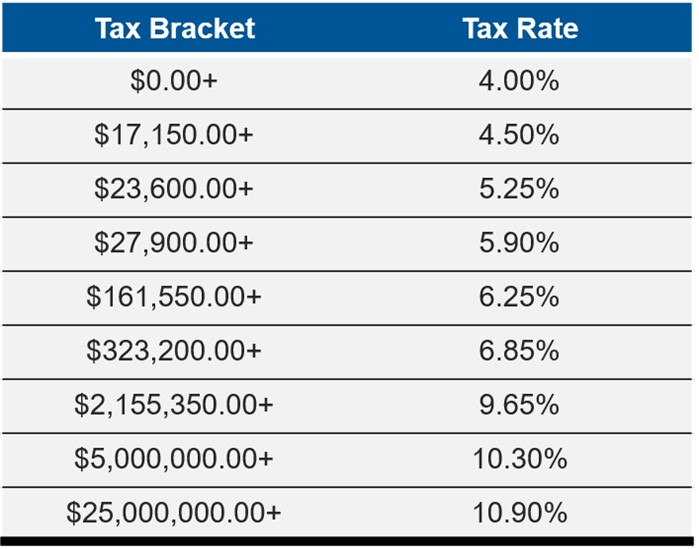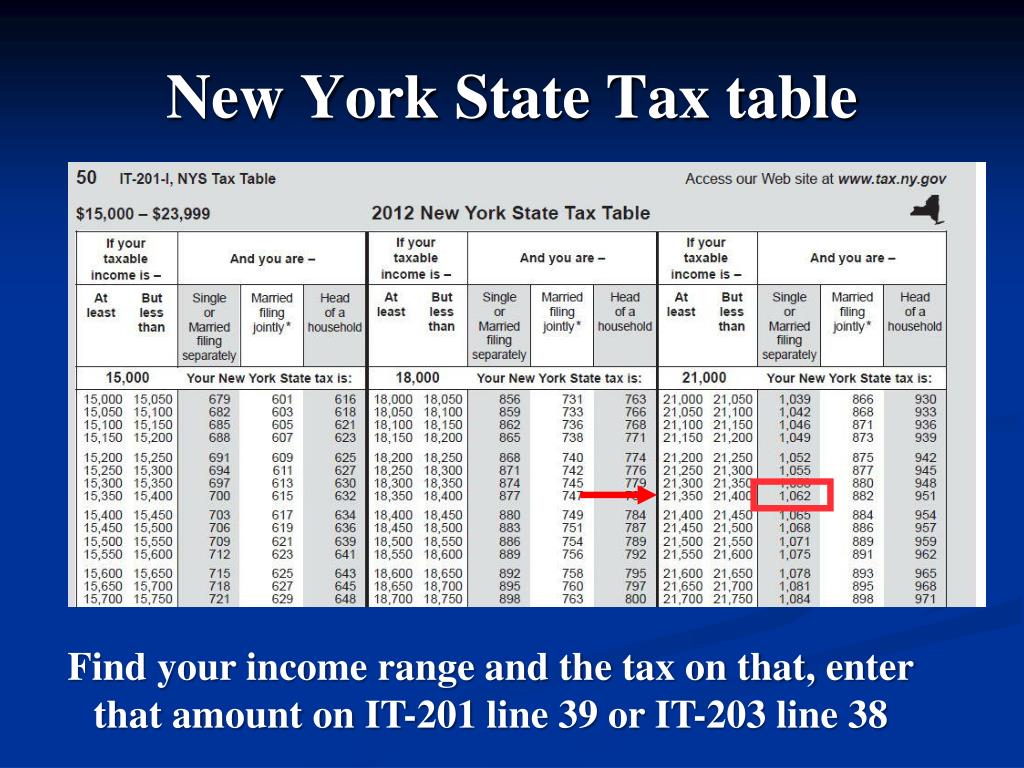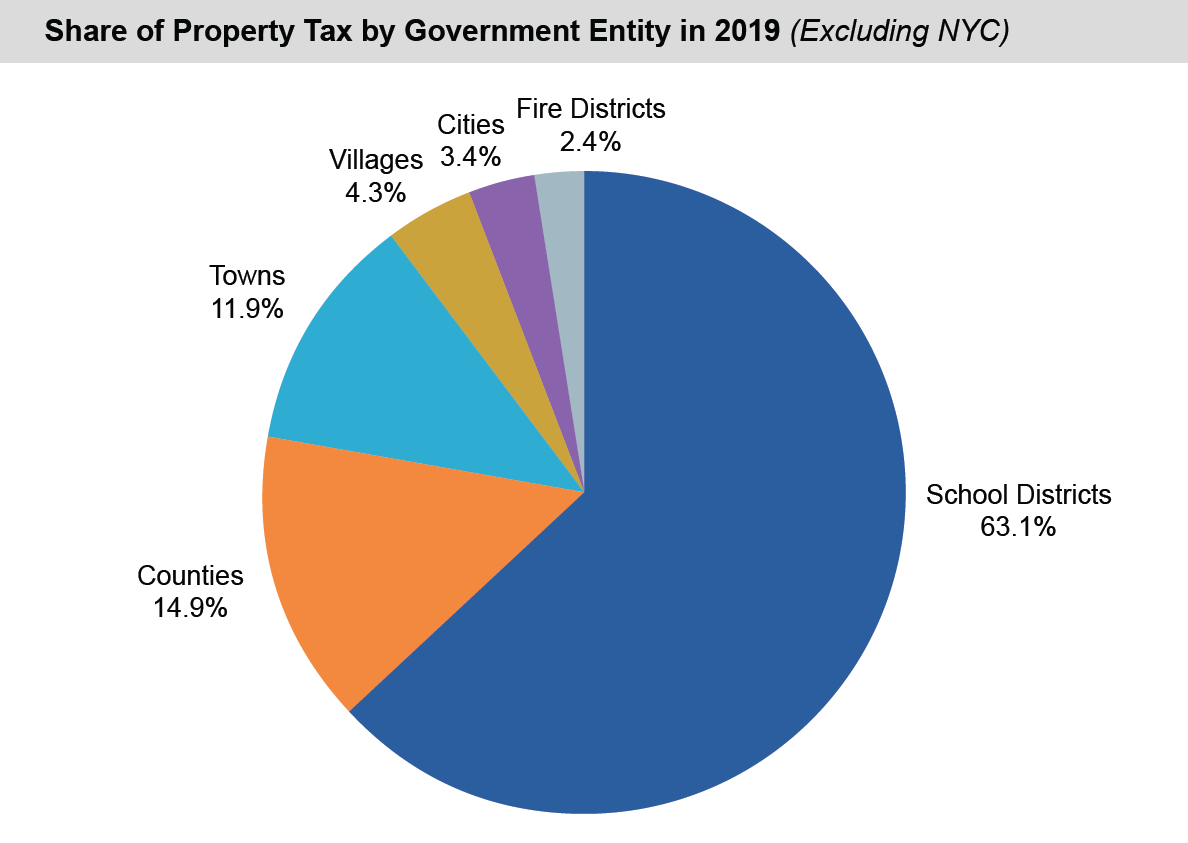Understanding NY State Tax: A Comprehensive Guide For Residents And Businesses
When it comes to financial planning, understanding NY state tax is essential for both individuals and businesses. New York State, known for its vibrant economy and diverse population, imposes various taxes that significantly impact residents' finances. From income tax to sales tax, property tax, and more, the tax landscape in New York can be complex. This article aims to demystify the intricacies of NY state tax, offering actionable insights and practical advice to help you navigate this critical aspect of your financial life.
Taxes are a fundamental part of living in any state, and New York is no exception. The state's tax system is designed to generate revenue for public services, infrastructure, and social programs. However, the multitude of tax types and regulations can often leave taxpayers confused and overwhelmed. Whether you're a resident trying to file your annual taxes or a business owner calculating your liabilities, staying informed about NY state tax is crucial to avoid penalties and optimize your financial health.
In this comprehensive guide, we'll delve into the various facets of NY state tax, including its structure, key components, and strategies for effective tax management. By the end of this article, you'll have a solid understanding of how the system works, what to expect, and how to make the most of available deductions and credits. Let's get started!
Table of Contents
- What Is NY State Tax?
- How Does NY State Tax Work?
- Income Tax in NY State: Who Pays What?
- How Much Is NY State Sales Tax?
- Property Taxes in NY State: Are They Fair?
- Why Is NY State Tax So High?
- What Are the Penalties for Late NY State Tax Payments?
- Tips for Managing NY State Tax Efficiently
What Is NY State Tax?
NY state tax refers to the various forms of taxation imposed by the State of New York on its residents, businesses, and visitors. These taxes serve as a primary source of revenue for the state government, funding essential services such as education, healthcare, transportation, and public safety. Understanding what constitutes NY state tax is the first step toward effective financial planning.
The tax system in New York includes several types of taxes, each with its own set of rules and regulations. The most common forms of NY state tax include income tax, sales tax, property tax, and excise tax. Each of these taxes targets a specific area of economic activity, ensuring a balanced approach to revenue generation. For example, income tax is levied on the earnings of individuals and businesses, while sales tax applies to the purchase of goods and services.
One important aspect of NY state tax is its progressive nature. This means that higher-income individuals and businesses are subject to higher tax rates, reflecting the state's commitment to fairness and equity. Additionally, the tax system includes numerous deductions and credits designed to alleviate the burden on certain groups, such as low-income families and small businesses.
How Does NY State Tax Work?
NY state tax operates through a combination of self-assessment and mandatory filings. Residents and businesses are required to calculate their tax liabilities based on their income, expenses, and other relevant factors. This process involves completing tax forms and submitting them to the New York State Department of Taxation and Finance by specified deadlines.
For individuals, the process typically begins with calculating gross income, which includes wages, salaries, dividends, and other forms of earnings. Deductions and exemptions are then applied to determine taxable income, which is subject to the appropriate tax rate. Businesses, on the other hand, must account for their profits, expenses, and any applicable credits when calculating their tax liabilities.
To ensure compliance, the state provides various resources, including online calculators, guides, and customer support. These tools help taxpayers navigate the complexities of the tax system and avoid common pitfalls. Furthermore, penalties are imposed for late filings or underpayments, emphasizing the importance of timely and accurate submissions.
Types of NY State Taxes
Here’s a breakdown of the main types of NY state taxes:
- Income Tax: Levied on the earnings of individuals and businesses.
- Sales Tax: Applied to the purchase of goods and services.
- Property Tax: Assessed on real estate and personal property.
- Excise Tax: Imposed on specific goods, such as gasoline and cigarettes.
Income Tax in NY State: Who Pays What?
Income tax is one of the most significant components of NY state tax, affecting nearly every resident and business within the state. The tax rates vary depending on the taxpayer's income level, with higher earners paying a larger percentage of their income in taxes. This progressive structure ensures that those with greater financial means contribute more to the state's revenue pool.
For individuals, NY state income tax is calculated based on federal adjusted gross income (AGI), with certain adjustments unique to New York State. Taxpayers can choose between itemizing deductions or taking the standard deduction, depending on which option provides greater tax savings. Additionally, the state offers various credits, such as the Earned Income Tax Credit (EITC), to assist low- and moderate-income families.
Businesses, including corporations, partnerships, and sole proprietorships, are also subject to NY state income tax. The rates differ based on the type of entity and its level of profitability. For example, corporations are taxed at a flat rate, while partnerships and sole proprietorships pass through their income to the owners, who then pay individual income tax.
Who Is Exempt from NY State Income Tax?
While most residents and businesses are required to pay NY state income tax, certain groups may qualify for exemptions or reduced rates. These include:
- Low-Income Individuals: Those earning below a certain threshold may not owe state income tax.
- Seniors: Retirees and older adults may benefit from special deductions and credits.
- Nonprofits: Organizations with tax-exempt status are generally not subject to income tax.
How to Minimize NY State Income Tax
Taking advantage of available deductions and credits is key to minimizing NY state income tax. Strategies include contributing to retirement accounts, claiming education credits, and utilizing dependent exemptions. Consulting with a tax professional or using tax preparation software can also help ensure that all possible savings are realized.
How Much Is NY State Sales Tax?
NY state sales tax is another critical component of the state's tax system, affecting consumers and businesses alike. The current statewide sales tax rate is 4%, but local jurisdictions may impose additional taxes, bringing the total rate as high as 8.875% in some areas. Understanding the nuances of sales tax is essential for both shoppers and merchants.
Sales tax applies to most tangible goods and certain services, with exemptions for items such as groceries, prescription medications, and clothing priced below $110. Businesses are responsible for collecting sales tax on behalf of the state and remitting it to the Department of Taxation and Finance. Failure to comply with these requirements can result in penalties and interest charges.
To further complicate matters, New York offers several sales tax holidays throughout the year, during which certain items are exempt from taxation. These periods provide an opportunity for consumers to save money on qualifying purchases while boosting local economies.
Do All Goods and Services Have Sales Tax?
No, not all goods and services are subject to NY state sales tax. Exemptions exist for essential items like food, medical supplies, and educational materials. Additionally, certain transactions, such as those involving nonprofit organizations or government agencies, may be exempt from taxation. Staying informed about these exemptions can help consumers and businesses avoid unnecessary expenses.
How to Handle Sales Tax as a Business Owner
Business owners must register with the state to collect and report sales tax. This involves obtaining a sales tax permit, tracking taxable transactions, and submitting regular filings. Automating these processes through accounting software or hiring a tax expert can simplify compliance and reduce the risk of errors.
Property Taxes in NY State: Are They Fair?
Property taxes represent a significant portion of NY state tax revenue, particularly in suburban and rural areas. These taxes are assessed on real estate and personal property, with rates varying by location and property type. While property taxes fund vital services such as schools and public safety, they have been a source of controversy due to their perceived inequity.
The assessment process involves determining the market value of a property and applying the appropriate tax rate. However, disparities in assessment practices and rapidly increasing property values have led to concerns about fairness and affordability. To address these issues, the state offers various relief programs, including the School Tax Relief (STAR) program, which provides credits to eligible homeowners.
Additionally, taxpayers have the right to challenge their assessments if they believe them to be inaccurate or unfair. This process involves filing an appeal with the local assessment office and presenting evidence to support the claim. While challenging an assessment can be time-consuming, it may result in reduced tax liabilities and improved equity.
Why Do Property Taxes Vary Across NY State?
Property taxes in NY state vary due to differences in local budgets, property values, and tax rates. Urban areas with higher property values and larger populations tend to have higher tax burdens, while rural areas may experience lower rates. These variations reflect the diverse needs and resources of each community, highlighting the importance of local governance in tax policy.
What Can Homeowners Do to Lower Property Taxes?
Homeowners can take several steps to lower their property taxes, including:
- Reviewing their assessment annually for errors.
- Applying for available exemptions and credits.
- Comparing their assessment to similar properties in the area.
- Filing an appeal if they believe their assessment is unfair.
Why Is NY State Tax So High?
NY state tax is often perceived as high compared to other states, raising questions about its necessity and fairness. Several factors contribute to this perception, including the state's extensive public services, large population, and high cost of living. Additionally, New York's tax system is designed to address income inequality by placing a greater burden on higher-income individuals and businesses.
The state's revenue needs are driven by its commitment to providing quality education, healthcare, and infrastructure. These services require significant funding, which is partially sourced through taxation. While some argue that the tax burden is excessive, others contend that it reflects the state's dedication to social welfare and economic development.
Efforts to address concerns about high taxes include tax reform initiatives, relief programs, and transparency measures. By engaging in open dialogue and collaboration, policymakers and taxpayers can work together to create a more equitable and efficient tax system.
Is NY State Tax Higher Than Other States?
Yes, NY state tax tends to be higher than in many other states, particularly for income and property taxes. This disparity is partly due to the state's larger population and higher cost of living, which necessitate greater revenue generation. However, it's important to note that the benefits of living in New York, such as access to world-class education and cultural institutions, often outweigh the costs for many residents.
How Can Residents Cope with High NY State Tax?
Coping with high NY state tax requires strategic planning and proactive measures. Suggestions include:
- Maximizing deductions and credits.
- Exploring alternative income sources with lower tax rates.
- Relocating to areas with lower property taxes, if feasible.
What Are the Penalties for Late NY State Tax Payments?
Failure to pay NY state taxes on time can result in significant penalties and interest charges, making timely compliance crucial. The state imposes both monetary penalties and potential legal consequences for delinquent taxpayers. Understanding these repercussions can help individuals and businesses avoid unnecessary financial burdens.
For income tax, late payment penalties typically amount to 5% of the unpaid tax for each month or part of a month the payment is overdue, up to a maximum of 25%. Interest is also charged on the unpaid balance at the federal short-term rate plus 3%. Similar penalties apply to sales and property taxes, underscoring the importance of meeting deadlines.
In extreme cases, the state may take legal action to recover unpaid taxes, including wage garnishment, asset seizures, and liens on property. These measures serve as a deterrent to noncompliance and emphasize the seriousness of tax obligations.
Can Penalties Be Waived or Reduced?
Yes, penalties for late NY state tax payments may be waived or reduced under certain circumstances. Taxpayers experiencing financial hardship or other extenuating circumstances can apply for relief by submitting a request to the Department of Taxation and Finance. Approval is not guaranteed but is more likely if the taxpayer demonstrates a good faith effort to comply with tax laws.
How to Avoid Late Payment Penalties
To avoid late payment penalties, taxpayers should:
- Set reminders for key deadlines.
- Organize financial records in advance.
- Consider enrolling in automatic payment plans.

New York State Taxes What You Need To Know Russell Investments

New York State Tax Brackets 2025 Gary Perkins

Taxes 2020 Financial Condition Report Office of the New York State